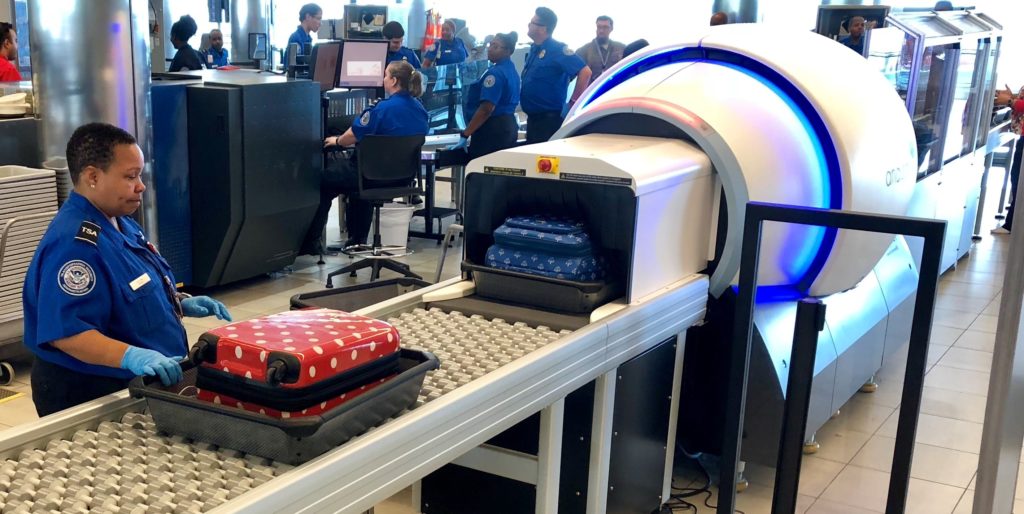The US Transportation Security Administration (TSA) is trialling a new state-of-the-art computed tomography (CT) checkpoint scanner at Baltimore Washington International-Thurgood Marshall (BWI) Airport, Maryland.
The CT scanner provides critical explosives detection capabilities by creating a 3D images of passenger luggage that can be viewed and rotated for thorough visual analysis by a TSA officer. If a bag requires further screening, TSA officers will manually inspect it to ensure there isn’t a threat.
David Pekoske, TSA administrator, said, “TSA is committed in getting the best technology to enhance security and improve the screening experience. Use of CT technology substantially improves TSA’s threat detection capability at the checkpoint.”
It is hoped that the deployment of CT technology will result in decreased checkpoint waiting times with passengers permitted to leave laptops and other electronic devices in their carry-on bags.
The TSA plans to have up to 40 units in place at airports around the USA by the end of the year, along with 16 units at federal testing facilities. More than 145 will be in US airports by the end of fiscal year 2019. The TSA began testing CT technology in 2017 at Phoenix Sky Harbor International Airport, Arizona, and Boston Logan International Airport, Massachusetts.

